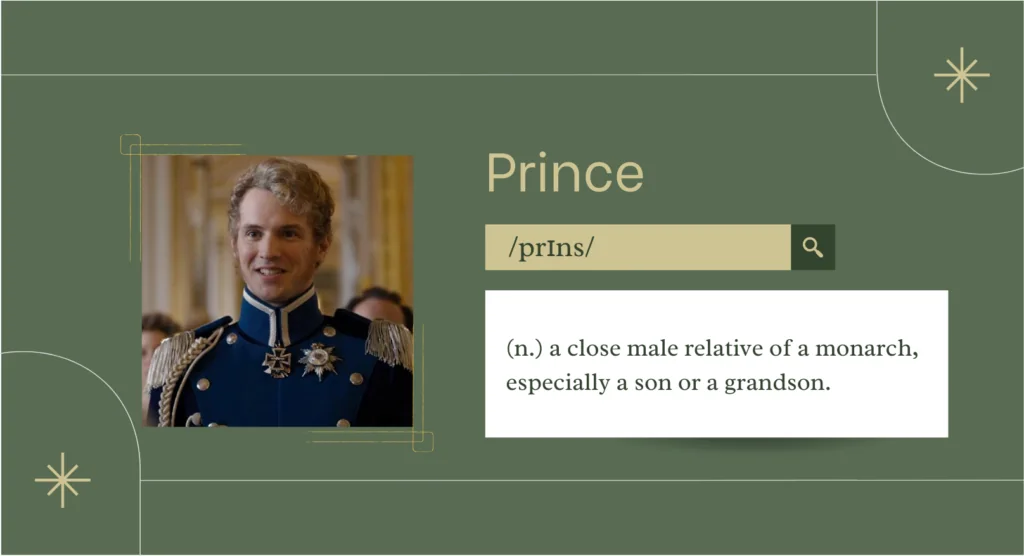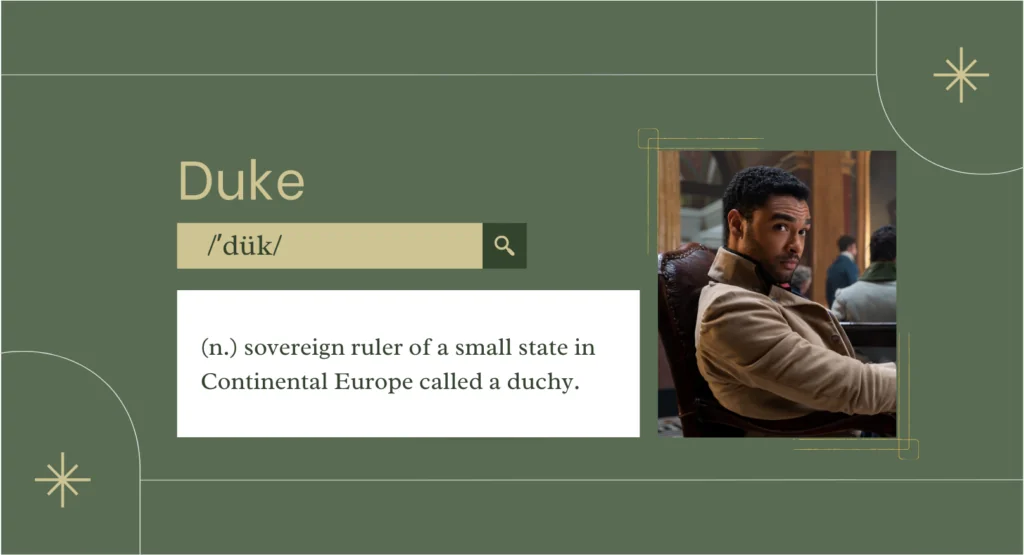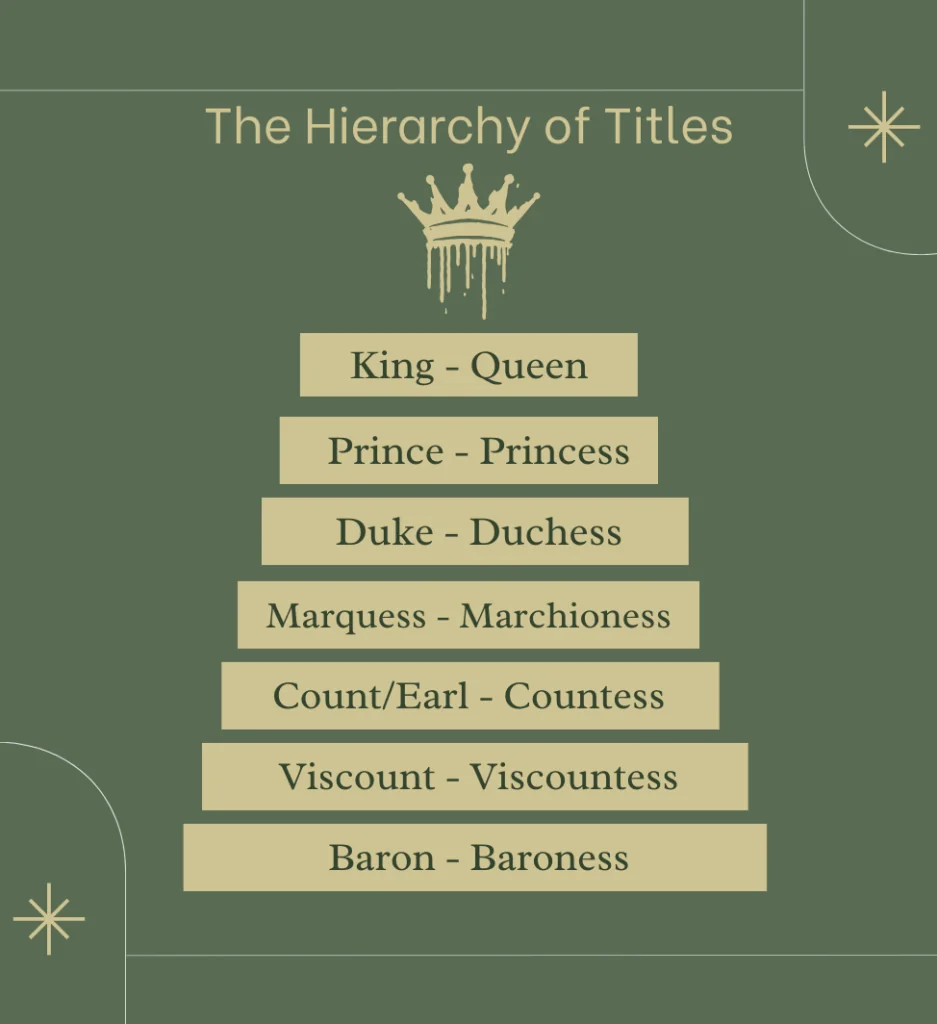Have you been watching Bridgerton lately and found yourself confused as to what the difference between the duke and prince is? After all, both are grand titles and seem to have a somewhat similar social impact. Or maybe you just have been burying yourself in history and periodic dramas lately and need to figure out what both terms mean just to make sense of all the information. Well, you’ve come to the right article. The main difference between a duke and a prince comes down to their rank and role. A prince is usually part of the royal family, often the son or grandson of the king or queen. On the other hand, a duke is a high-ranking noble, but not necessarily a royal. However, there are more nuances to the differences in these titles, so let’s look into them together.

✅ AI Essay Writer ✅ AI Detector ✅ Plagchecker ✅ Paraphraser
✅ Summarizer ✅ Citation Generator
Duke vs Prince: Definitions
Alright, let’s break down the difference between a duke and a prince. A prince is usually a high-ranking member of the royal family, like the son or grandson of the king or queen, and might even be in line for the throne. Think of Prince Harry or Prince William—classic examples. Sometimes, a prince rules over a small area called a principality, like the Prince of Monaco.

On the flip side, a duke is a noble but not necessarily part of the royal family. A duke oversees a specific region, kind of like being in charge of a big estate, and their female counterpart is called a duchess. In the British royal family, Prince William is also the Duke of Cambridge, which shows that royals can hold multiple titles.

In Bridgerton, we see these titles in action. Simon Basset, for instance, is the Duke of Hastings (aside from being a pure a**hole, btw). His title means he’s a high-ranking noble but not royal. His responsibilities include managing his estate and being a part of the elite social circle. Meanwhile, Prince Friedrich of Prussia, who appears in the first season, is a prince—meaning he’s a part of the royal family and holds a higher rank than a duke.
How One Becomes a Duke
Becoming a prince and becoming a duke are two very different journeys. To become a prince, you generally need to be born into the royal family. For example, Prince William and Prince Harry were born as princes because their father, Prince Charles, was the heir to the British throne. Marriage alone doesn’t grant this title. Similarly, women marrying into royalty, like Meghan Markle, don’t become princesses in their own right but acquire titles like Duchess of Sussex.
On the other hand, becoming a duke doesn’t require royal blood. Dukedoms can be inherited or granted by the reigning monarch. For instance, Prince William became the Duke of Cambridge when he married Kate Middleton. If we look into the storyline of Bridgerton, we will see that Simon Basset, the Duke of Hastings, inherited his title from his father, representing how dukedoms often pass down through generations. This tradition of bestowing dukedoms at marriage is quite common in the British royal family. But not all dukes are royals. A king or queen can also grant the title to non-royals as a significant honor.
Other Important Titles: Earl, Baron, Count, Viscount, and Marquis
Aside from princes and dukes, the world of nobility includes a variety of other intriguing titles. Let’s break them down:
- Marquess: Right below a duke, a marquess (or from French pronunciation marquis), pronounced either “mahr-kwis” or “mahr-kee”, oversees a border territory and holds significant power. The female equivalent is a marquise or marchioness.
- Count and Earl: Essentially the same rank, counts and earls come next. The term “count” is used more in Europe, while “earl” is favored in the UK. The female equivalent is a countess. These nobles managed large areas of land and had considerable influence over their regions.
- Viscount: Below an earl or count is the viscount, a nobleman who assists in governing smaller regions or acts as an intermediary. The female version is viscountess. Think of a viscount as someone who would handle affairs for higher-ranking nobles.
- Baron: The lowest rank of the nobility, barons oversee smaller lands and have less influence compared to the higher ranks. The female equivalent is baroness.
These titles establish a clear hierarchy within nobility. At the top, you have the prince, directly connected to the royal family and often in line for the throne. Next is the duke, who, while not royal, holds significant power and land. Following dukes are marquises, earls/counts, viscounts, and finally barons. Each step down the ladder represents a decrease in power, land, and social status.
FAQ
Follow us on Reddit for more insights and updates.






Comments (0)
Welcome to A*Help comments!
We’re all about debate and discussion at A*Help.
We value the diverse opinions of users, so you may find points of view that you don’t agree with. And that’s cool. However, there are certain things we’re not OK with: attempts to manipulate our data in any way, for example, or the posting of discriminative, offensive, hateful, or disparaging material.